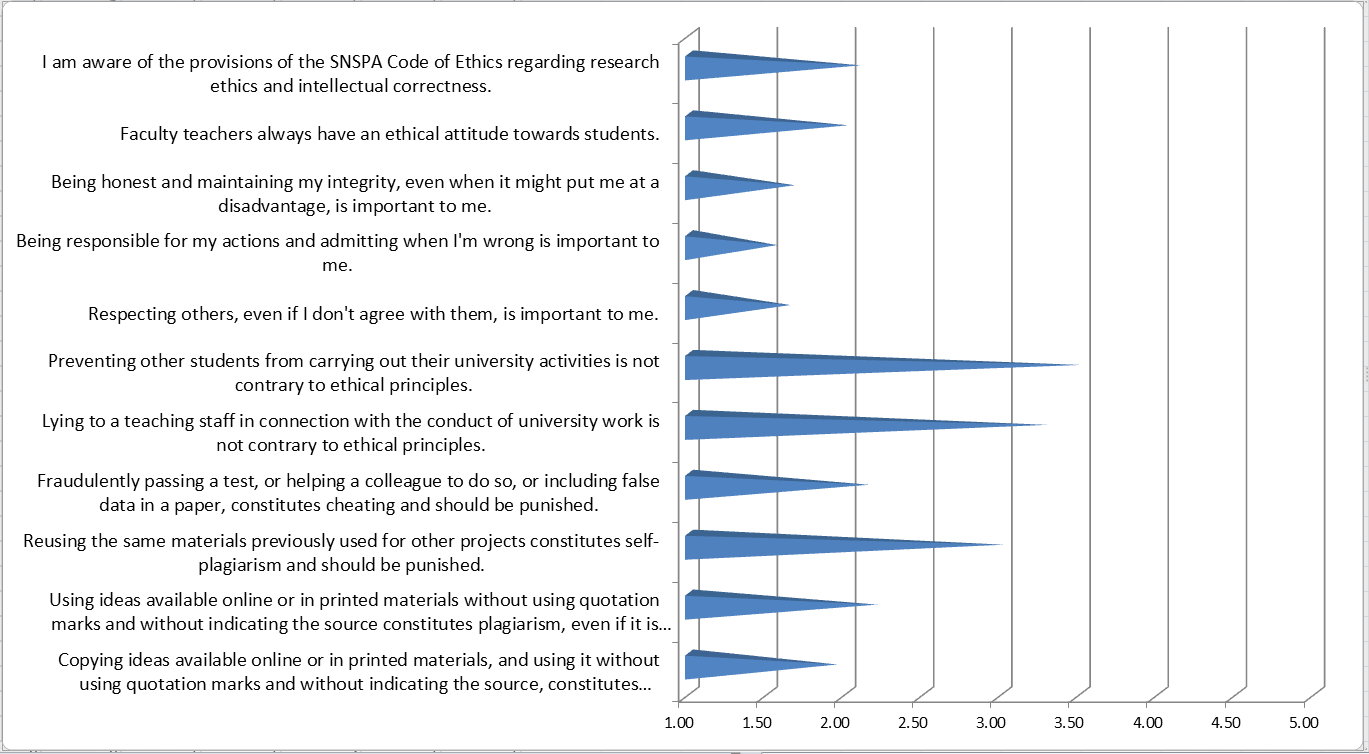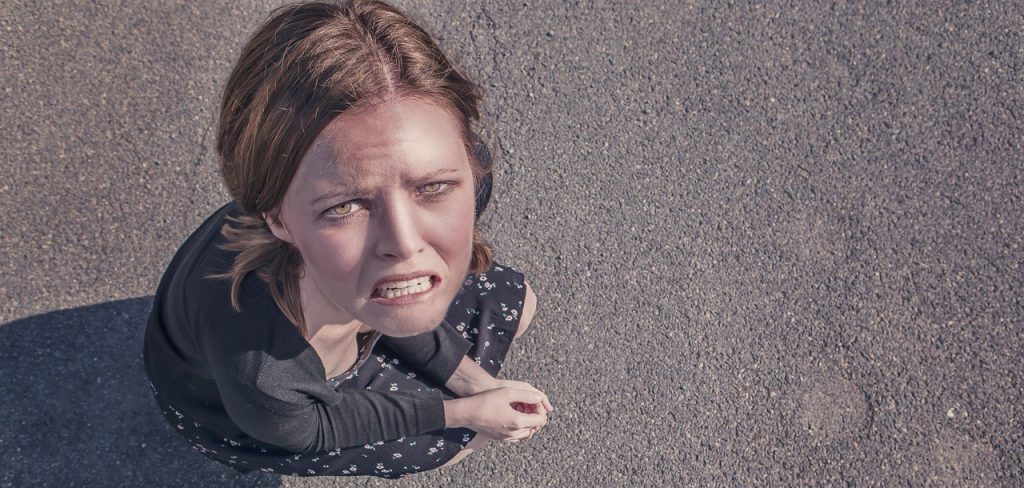In this section, the answers to the questionnaire are analyzed to investigate students’ perceptions regarding the quality and evaluation of teaching activity, academic ethics, and well-being, in relation to the transition to exclusively online education, in the context of the COVID-19 pandemic. It was launched at the beginning of the academic year 2022-2023 and completed by 534 students. The vast majority of students experience online university studies at SNSPA, being enrolled in the 2nd and 3rd university years, as well as the 2nd year of master’s studies.
Students represent all the structures within SNSPA, but two of the faculties – Management and Communication and Public Relations – are slightly more present in the sample. Approx. half of the respondents lived in Bucharest during the pandemic and were employed, full-time or part-time.
The subject of academic ethics was addressed using a set of 11 statements, to which the students gave a score from 1 to 5, where 1 means total agreement and 5 – total disagreement. The scale used was adapted from Yeung & Keup (2009) and Plante & McCreadie (2019). Below is the centralization of the average of the opinions expressed.

The study suggests that most students do not consider plagiarism and self-plagiarism unethical behavior. The greatest degree of variation in the answers is in the case of self-plagiarism, which was the statement with which the respondents totally disagreed to an almost equal extent with those who totally agreed (23.9% versus 25.7%). This was also mentioned in the focus group attended by teachers as a problem.
The main conclusion of this preliminary analysis is the fact that the attitude towards academic ethics is quite lax among students, which may be due to the misunderstanding of the multiple and complex facets of this phenomenon. Therefore, there is a need for more discussions and even training programs with students on this topic (or at least to insist more during the mandatory courses on “Thesis writing methods”.
Responsible for researching academic ethics during the pandemic: Drd. Valentin Stoica

